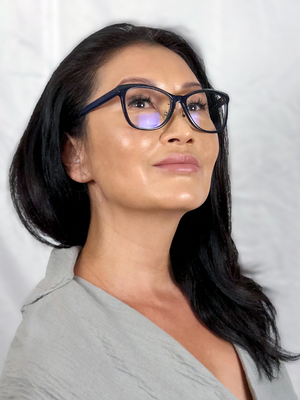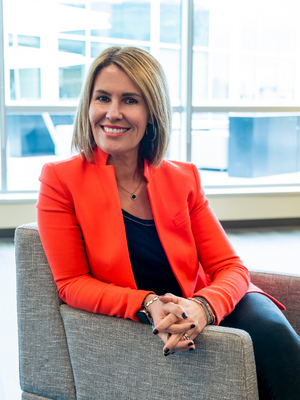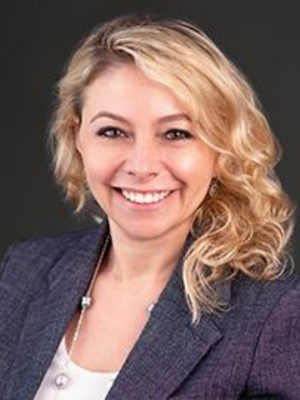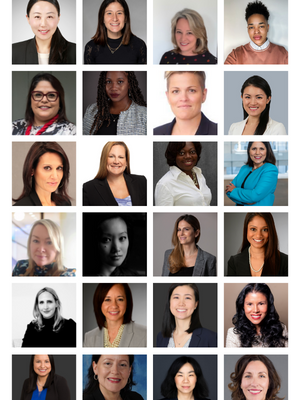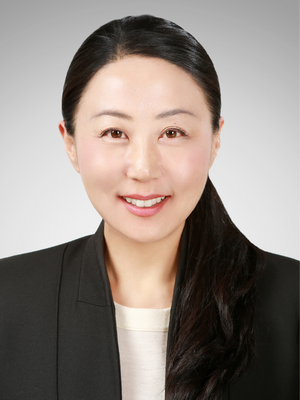“It makes all the difference in the world that you don’t have to compartmentalize and say ‘this is who I am over here’ and ‘this is who I am over here,’” says Loretta Pearce. “To just be who you are everywhere is liberating.”
Yet the research is clear, the further you are from dominate prevailing culture in the workplace, the more you adapt and conform to expected norms to thrive in the organization.
Pearce shares, “I’ve spent much of my career helping others navigate this space so that they can advance their careers and be as authentic as possible given cultural workplace constraints”.
She inspires us with a love for supporting the transformation of organizations and people, checking your inner circle, embracing difference, offering up your best gifts and giving yourself, and others, some grace.
From Academia to Leading Diversity and Inclusion
Pearce’s DEI journey was seeded when she left her hometown community to become an undergrad at the University of Virginia. Though she was an honors student in the top 10% of her class and well-supported by a preparatory program as a first-generation college student, she also experienced a sense of “otherness” those years on campus that catalyzed her drive to create open and inclusive spaces for everyone: “I wanted people in any space to feel a sense of their own value as well as a sense of belonging.”
After graduation, while teaching, she worked with (predominantly black and brown) students from lower income communities in the inner-city. When that campus relocated to a suburban location, diminishing her ability for impact, Pearce moved into learning and development in corporate spaces. Given her passion for inclusion, she was repeatedly called on to facilitate conversations, coach leaders and lead DEI initiatives.
“In my heart, at the very core of who I am, I’m an educator,” Pearce shares, who is immersed in doctoral studies at Teachers College at Columbia University, “I am always seeking to support others as they endeavor to be their best selves.”
While in talent management roles, Pearce realized that no matter how much leadership development an individual had, if that person wasn’t provided with opportunities by organizations to showcase their skills and talent, her work was in vain. She began connecting people to opportunities and sponsorships as she went across various talent management roles until DEI became her focus. That has meant that not only does she focus on supporting people but also on systemic barriers to inclusive workplace practices, community outreach and engagement, recruitment and supplier diversity.
She contends that “Being strategic and intentional with a holistic view, understanding an organization’s culture and practices, developing and managing relationships with stakeholders and being steadfast and determined are essential to having impact in this space. Diversity and inclusion must be embedded into every facet of the organization; that takes time, attention, and resoluteness.” Most recently she was the DEI Global Talent Management Programs Leader at Meta (formerly Facebook) and in May of 2022 she was hired as Chief Diversity and Inclusion Officer (CDIO) for Shearman and Sterling, LLP.
As the CDIO at Shearman and Sterling, Pearce, has responsibility for Shearman & Sterling’s global diversity and inclusion strategy. Pearce shares that she “grew up in law firms,” as after serving in academia she launched her corporate career at a law firm. She reveals that after meeting with the firm’s leadership “it was clear to me that diversity and inclusion was a key priority for the firm and that I would get the support required to continue to develop and implement the firm’s goals and vision in this area”.
Since she is an educator and it is foundational to the work she does, she finds the time to facilitate unconscious bias programming or other sessions with inclusion themes – recently for example, at Shearman and Sterling’s Associate Leadership Academy, and while “glamping” during one of the practice area retreats.
Check-In: Who is In Your Trusted Ten?
“Acknowledging and identifying your own bias is the beginning of being better,” Pearce says. “To simply recognize that you have unconscious bias, that we all have it, and then to try to understand and mitigate against it – and essentially, widen your circle.”
She challenges individuals to consider “The Trusted Ten,” those who are the closest ten people in your friend group. What are their demographics (gender, race/ethnicity, education, socioeconomic status)? If they align with you in most of these areas (which they normally do), find someone different in some way and have a conversation. The more you do that, the more open to difference you become. Pearce notes that “small, deliberate progress in this area can make a big difference”.
Pearce argues, especially when she is met with resistance from leaders around sponsorship, that “you’re sponsoring people all the time. Anytime there’s an opportunity and you put a name forward, if you’re a leader, you’re sponsoring that person – and, typically that person looks like those who are part of your trusted ten.” Pearce advises that as leaders we must endeavor to embrace difference, widen our circles, and understand the abilities of all those we lead; their talents, aspirations, and capabilities so that we can put their names forward the next time an opportunity presents itself that aligns with their experience and skill set.
Pearce brings her passion and experience to bear in her work at Shearman and Sterling, LLP and is especially excited about the culture of mentorship and sponsorship that the firm is already known for: “The firm has received numerous accolades for partners who are patient and understanding that take the time to explain assignments. Repeatedly during my listening tour, I heard that the culture was collegial, considerate, and kind. The firm’s values align with my own and we continue to make progress toward creating a more diverse and inclusive environment,” Pearce shares.
Her Success Factor: A Love For People
“The higher you are in leadership, the more removed you can become from those you impact. But I love to talk to the people that I’m endeavoring to elevate, advance and serve,” says Pearce. “What really motivates me is having conversations with the people I’m trying to serve, hearing directly about their experiences and understanding what I can do to better help them.”
Pearce would say the biggest factor behind her success is “honestly, just a love for people.” As a preacher’s kid (a PK, she quips, with a smile, adding she is also married to a man who is a pastor), she was brought up on the values of loving and treating all people with kindness, respect, and dignity.
“I believe that relationship with and service to others is foundational,” says Pearce. “No matter what situation I find myself in, I look around and ask, how can I serve?”
Strive For Excellence and Give Grace
Pearce has joy at her core and brings that into the workplace. She leads with calm and compassion and fosters a team culture of collaboration, learning and giving people the benefit of the doubt rather than jumping to judgement or blame when a mistake occurs. She emphasizes and practices the perspective of “giving people some grace.”
Pearce imparts two key pieces of advice to mentees. The first is “Strive for excellence. Mediocrity is just not acceptable, so offer your best gifts.” That came from her parents and the environment that she was raised in, but also, her family and community of origin emphasized that you must “Give yourself some grace, and if necessary, forgiveness. Take chances, be bold, mistakes offer an opportunity to grow. Learn the lesson and move on.”
Embracing Difference
As an introvert, Pearce’s stretch zone has been around extending herself in social settings, as her senior leadership and executive roles hinge on building relationships, developing, and managing them and therefore networking is essential.
“We are all humans having a human experience and so you ought to be able to connect with anybody on some level,” notes Pearce. “Different perspectives are something to embrace, not something to close yourself off to, because they help you think and see things from different perspectives – and that’s what this work is really all about.”
Role Modeling Towards the Future
Along with working on her doctorate, Pearce serves in the church and does a lot of reading. She also loves TV, movies, and science fiction, declaring: “I’m a Trekkie from way back. If it says Star Trek, I’ve watched it.” But there’s more to her Trekkie passion than entertainment.
“When Star Trek started, they had a very talented and diverse cast, and, of course, Nichelle Nicholas who played Lt Nyota Uhura, a beautiful, intelligent, competent black woman who was either 3rd or 4th in the command structure. I could see myself in the future,” says Pearce. “I loved the show and the world it created, and I loved exploring the themes they grappled with.”
With a demanding schedule, Pearce still finds time to coach and mentor those who reach out to her for support and guidance. She shares, “At the end of the day, it’s about impact and leaving the world better because you were here. I endeavor to do that every day. It fuels me and inspires me to do even more in my areas of expertise and influence.”
By Aimee Hansen


